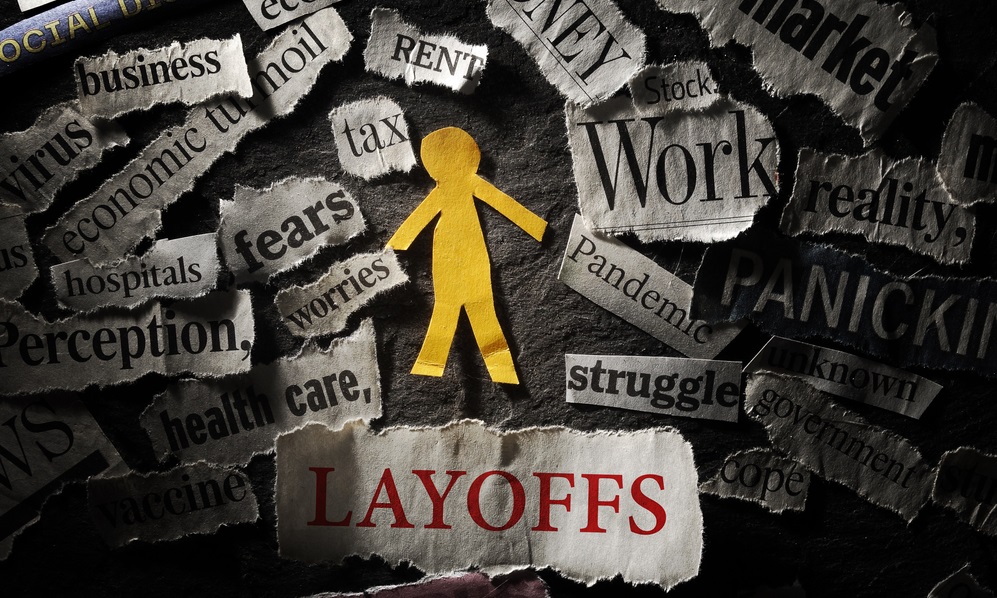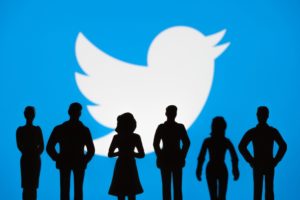
In the Shadow of the Twitter Acquisition-Layoff Disaster: How to Prepare for Layoffs

(zimmytws/Shutterstock)
There is an increasing chance that many of us will experience layoffs shortly. The Twitter disaster is a rolling showcase of how not to do one. I’m often struck by how few people know how to do a layoff or company acquisition well given how common they are.
Let’s talk a bit about the Twitter layoff trainwreck and then go into how you can assure that the groups you’re in or report to you remain viable in the face of a layoff or acquisition.
The Twitter vs. Dell Process (Dell is a client of the author)
Dell has what I believe to be the best acquisition process on the planet. What makes it so good is how Dell approaches the prospect of an acquisition. They do more due diligence and planning at the front end and accept the related risk of having to sideline the executives for up to a year if the acquisition doesn’t go through. This trades off the risk of losing the productivity of a handful of people against losing the productivity of the entire acquired unit and, so far, every acquisition I’ve followed not only has been successful, but the acquired company outperformed where it was prior to acquisition. This last is very unusual as most acquisitions fail to meet expectations.
The reason for these failures is that Elon Musk used the more common process of not doing deep analysis before the acquisition, and then putting speed in front of quality on the critical path to execution. Dell moves as quickly as Musk, but by starting early, Dell’s approach assures the quality of the outcome while Musk’s process clearly did not. The early emphasis on the Dell process is to identify all the critical assets Dell has acquired and then move to protect them, while Musk’s (and most others) are so focused on speed that much of the value of the acquired company is lost during the process.
The acquiring company will have to downsize but that needs to be done surgically so the company remains viable, using a more scalpel-like approach as opposed to the axe that Musk used. It strikes me as foolish that technology companies in particular don’t take a data and analytics approach to acquisitions and downsizing, but most don’t. Dell’s approach is heavily analytics-based. Had Dell acquired Twitter, it would have not only remained viable, it would now be better off than worse off due to Dell’s process.
Preparing for a Layoff
Even if a layoff is done well, you need to be able to argue for your best people in order to assure that once the layoff is done you’ve minimized the collateral damage to your operations. This means you need to know not only who your top performers are but who is keeping your team(s) together and focused. You’ll need this information to help you choose who goes and who stays, and to have the ammunition you need to defend against a termination that would cripple the working group(s).
Layoffs destroy company loyalty and team cohesion, so you also need to have a plan to keep your people informed and help them make decisions out of crisis. This means that if a layoff is likely, helping people you know you are likely to use more easily transition out of the company will pay dividends with those that remain who see this treatment as it will remove a great deal of concern about the potential outcome and possibly lower the number of people who decide to leave early even though they might not have been on the final termination list.
You may need retention packages for your most valuable employees because headhunters will tend to identify and recruit them for hard-to-fill positions when they get wind of the coming layoff. Your goal as a manager is to retain your team(s) viability even if executive management seems to have gone insane with their overall layoff approach as appears to be the case at Tesla.
This brings up one other important point: Ask yourself if you want to ride this out. Were I at Twitter, my answer would be no, but I’d still want to maintain relationships with my people and assure them they are taken care of during this painful process. But be honest with your folks. If you are leaving because you no longer see a future at the company, then execute as quickly as possible so the firm can backfill you with someone more loyal and you aren’t leaving your employees feeling like you told them one thing (stay) and then did another. People have a tendency to swap places, and some of those future subordinates may be critical to your finding another job months or years in the future. The better you take care of them, the better they may eventually take care of you.
Wrapping up: Planning, Analytics and Honesty
I personally think layoffs are stupid because they are very difficult to do well, and they can destroy employee loyalty to a degree that can leave the remainder of the company non-viable for an extended period of time. You can also downsize surgically which substantially reduces the kinds of problems Twitter is experiencing now. It’ll become non-viable and then rush to hire back some folks that likely won’t last long at the firm because they no longer like or trust it.
But if you have been ordered to execute a layoff, you’ll end up in far better shape if you rapidly decide if you are going to stay or not and already have a data-based idea on what employees you can lose and which ones you can’t. Finally, remember that, with a layoff, both you and your employees are in the same boat. This can become a bonding exercise where the teams collectively work together to weather the coming storm as opposed to throwing each other under the layoff bus. The first can result in a stronger smaller team, the second will destroy the team(s) outright.
On a personal note, I tend to advise avoiding working for companies that do layoffs because, having been through one, I know how painful they can be even if, as was my case, you aren’t one of the folks laid off. These events can be incredibly stressful and depressing. Recognize you aren’t alone and seek both to assure your own resulting mental health and that of your employees.
Good luck and be thankful you don’t work for a Musk company. If you do, maybe fix that while you still can.
About the author: As President and Principal Analyst of the Enderle Group, Rob Enderle provides regional and global companies with guidance in how to create credible dialogue with the market, target customer needs, create new business opportunities, anticipate technology changes, select vendors and products, and practice zero dollar marketing. For over 20 years Rob has worked for and with companies like Microsoft, HP, IBM, Dell, Toshiba, Gateway, Sony, USAA, Texas Instruments, AMD, Intel, Credit Suisse First Boston, ROLM, and Siemens.
Related Items:
The Need to Refocus AI Priorities
Do We Need to Redefine Ethics for AI?

































